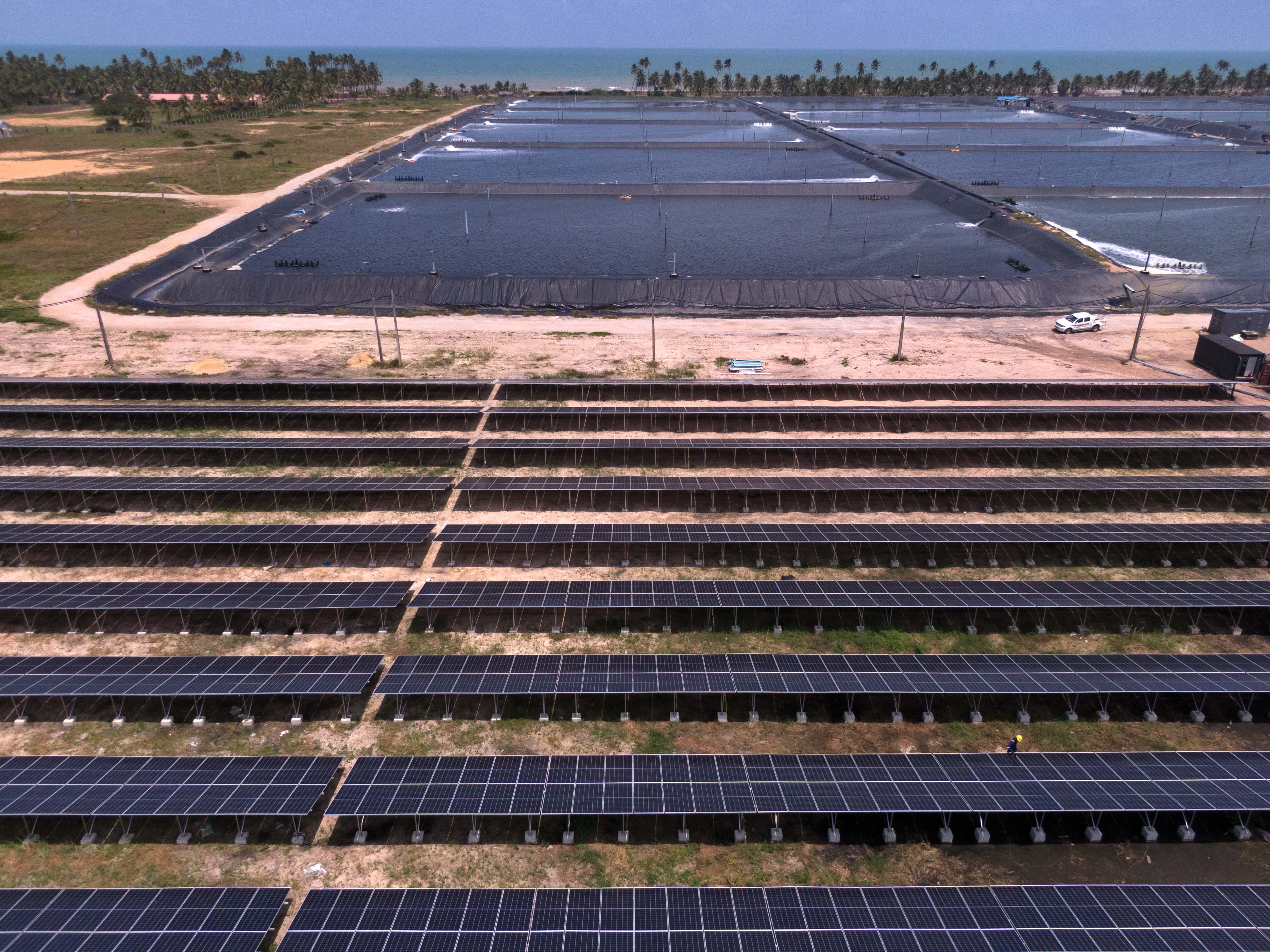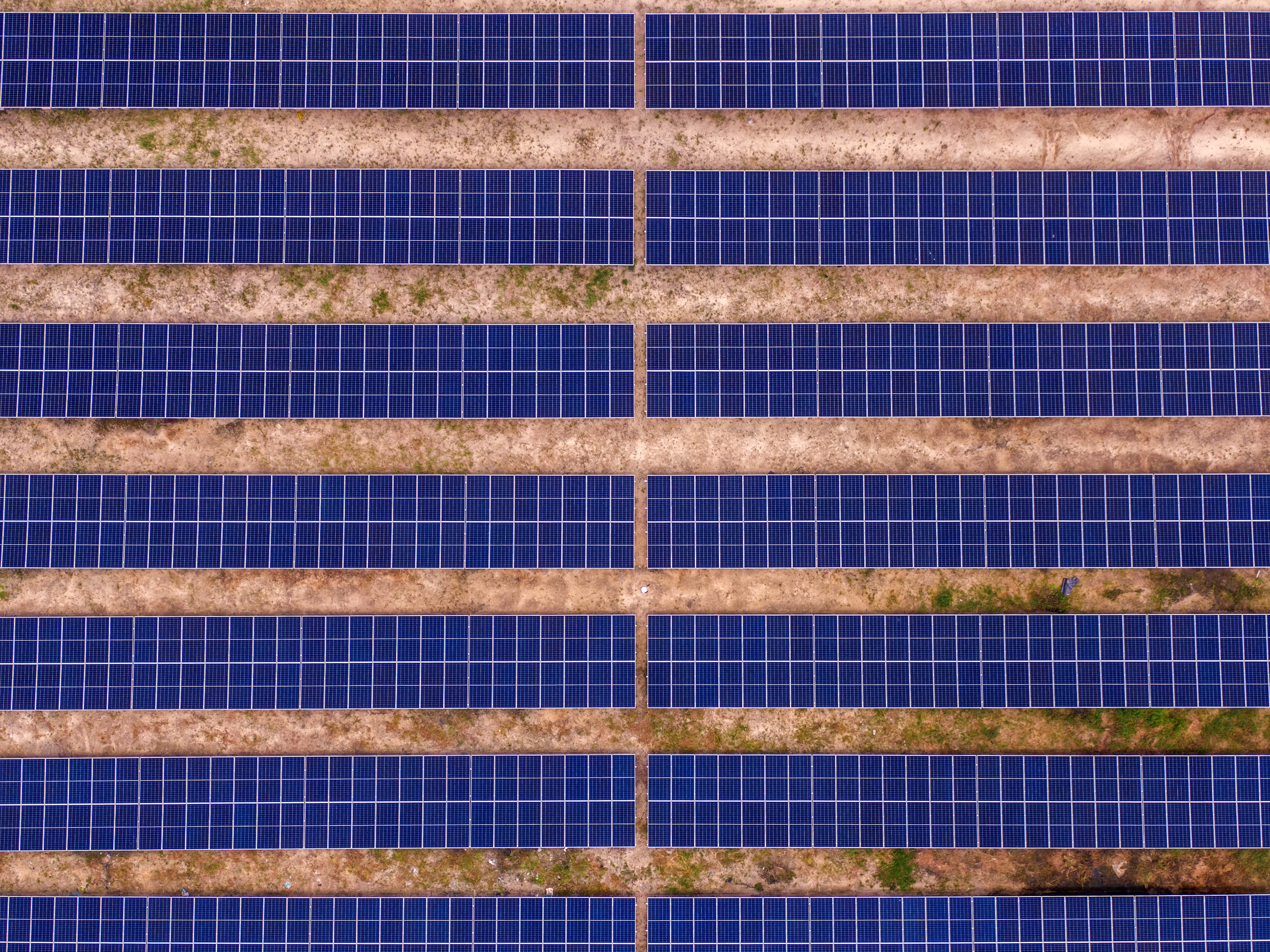In 2016, Atlantic Shrimpers Limited (ASL) embarked on a shrimp farming journey. Determined to lower power costs and adopt green energy solutions, ASL is now channeling the power of solar energy to fuel its operations, setting a precedent for renewable energy use in Nigeria.
Located two hours west of Lagos, Nigeria's bustling hub, the tranquil town of Badagry offers an escape from the city's fast pace. Nestled amidst lakes and creeks, this historic port town has become a favorite weekend getaway for residents of Lagos and serves as a popular stopover en route to Benin.
Just a half-hour boat ride away from Badagry lies Nigeria's pinnacle shrimp farm, run by ASL. A longstanding trawler company known for its Prim7*Stars seafood brand, ASL has branched out into the sustainable yet energy-intensive field of aquaculture. Their foray into farming black tiger prawns, renowned for their size and taste, was inspired by their frequent catches in the wild.
Covering a sprawling 160 hectares, the ASL shrimp farm represents a first-of-its-kind vertically integrated facility in Western Africa, encompassing a hatchery, grow-out ponds, and modern processing plants. While the geographical location poses logistical challenges, being accessible only by water, ASL has risen to the occasion, navigating the complexities of establishing a state-of-the-art farm in this secluded coastal area.
A significant challenge that ASL faced was the power supply, a vital aspect as they scaled their shrimp production to meet both domestic and international demand. The unstable power grid in Nigeria and skyrocketing diesel prices could have turned the cost management of such a large-scale operation into a logistical nightmare. However, solar energy presents a sustainable and substantial solution.

Transition to Solar Energy
Last year, we assisted ASL in transitioning to solar power, demonstrating that renewables can indeed fuel large-scale operations. Here, we unfold the process of this transition, illustrating the potential benefits that await industrialists willing to adopt solar power.
Initiating the solar installation at the ASL site was a challenge, compounded by the scale of the operation and its geographical location. Traditionally, businesses looking to reduce dependence on the grid and diesel opt for rooftop installations as a first step. However, this approach was impractical for ASL for a couple of reasons. Firstly, the rooftop could only accommodate solar panels producing 434 kW of output, far less than what was needed. Secondly, the proximity to the ocean meant that the salty air would corrode the roof, necessitating annual replacements.
Fortunately, the site's geography presented a solution. Since ASL owns a 2 km2 island off the coast of Badagry, we utilized a portion of this land to install a 998 kWp solar system, our largest ground-mounted installation to date. The project required several barge trips from Apapa, taking around 5 hours to reach the site each time. In total, 1,848 Jinko Solar 540W panels were installed, boasting a module efficiency of 21.4%, thanks to the use of tiling ribbons that eliminate cell gaps to increase efficiency.
-min.jpg)
The installation included 8 inverters housed in 20-foot containers lined with sandwich panels and rock wool insulation, which converted DC to AC power. Additional safety measures included fuses to protect against overcurrent from the solar panels. The power produced is transmitted to a transformer, where it steps up from 400 V to 11 kV before synchronizing with the existing grid system. A hybrid control system was integrated to optimize the performance of solar PV and diesel generators, with remote monitoring enabling real-time system oversight and proactive issue management.
Utilization of Solar Power by ASL
Since its inception, the solar farm has generated a remarkable 495.99 MWh of energy, translating to a CO2 reduction of approximately 274,930 kg per year. This impressive achievement equates to saving about 12,747 trees.
ASL's Badagry facility is divided into four sectors, each with 15 shrimp ponds. Currently, two sectors are active, necessitating 650 kW of energy. The newly installed solar farm meets around 40% of the farm's daytime power requirements, capitalizing on the peak sunlight hours.

Fostering Business Growth in Rural Areas
ASL's initiative represents more than a business transformation; it stands as a beacon, illustrating the potential for industrial manufacturers to venture beyond the confines of major cities. By doing so, they can stimulate economic growth and elevate communities outside urban centers.
Unfortunately, many manufacturers choose locations within industrial zones due to inadequate infrastructure, primarily concerning power supply. This trend has led to a concentration of jobs in cities, fostering a mass migration from rural areas to urban centers, with about 600 individuals moving to Lagos daily. This urban population surge places enormous strain on already limited infrastructure and housing resources.
Encouraging manufacturing ventures in rural areas can potentially reverse this trend, fostering a positive impact on local communities and the wider economy. Renewable energy emerges as a viable solution, promising to offer stability to power grids across Nigeria and the broader Sub-Saharan region. With the escalating energy crisis, businesses with high energy demands are urged to consider renewables as diesel costs soar beyond 700 to 800 naira per liter, making it unsustainable in the long run.
Solar energy, therefore, stands as the preferred choice for businesses across the region, replacing the reliance on diesel generators and paving the way for a greener, sustainable future. As evidenced by ASL, solar solutions can be installed in even the most challenging conditions, integrating smoothly with existing grids. Looking forward, we anticipate a surge in cases where solar installations are prioritized from day one, fostering job creation outside major cities and promoting rural upliftment.

Through wider adoption, solar energy promises substantial savings for companies while safeguarding the environment, making the integration of solar power into business operations an attractive and viable option. As demonstrated by ASL, where there's determination, a successful transition is indeed possible.
